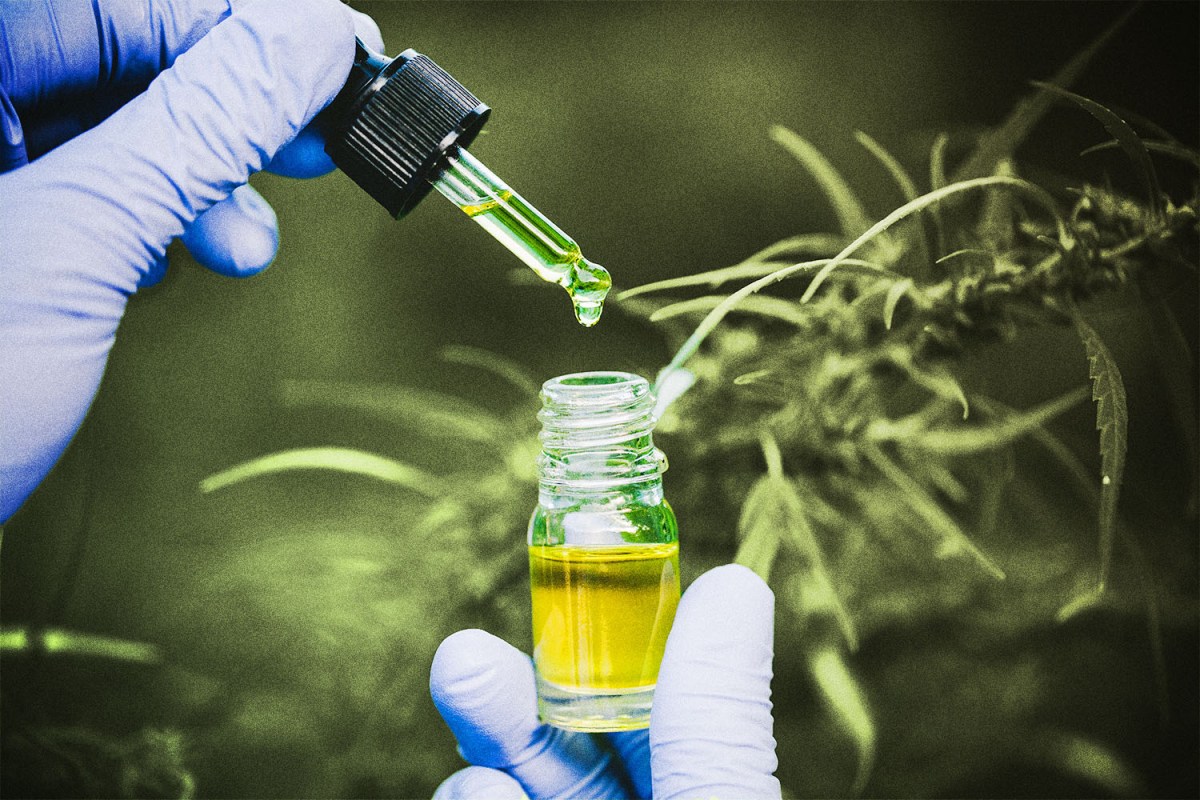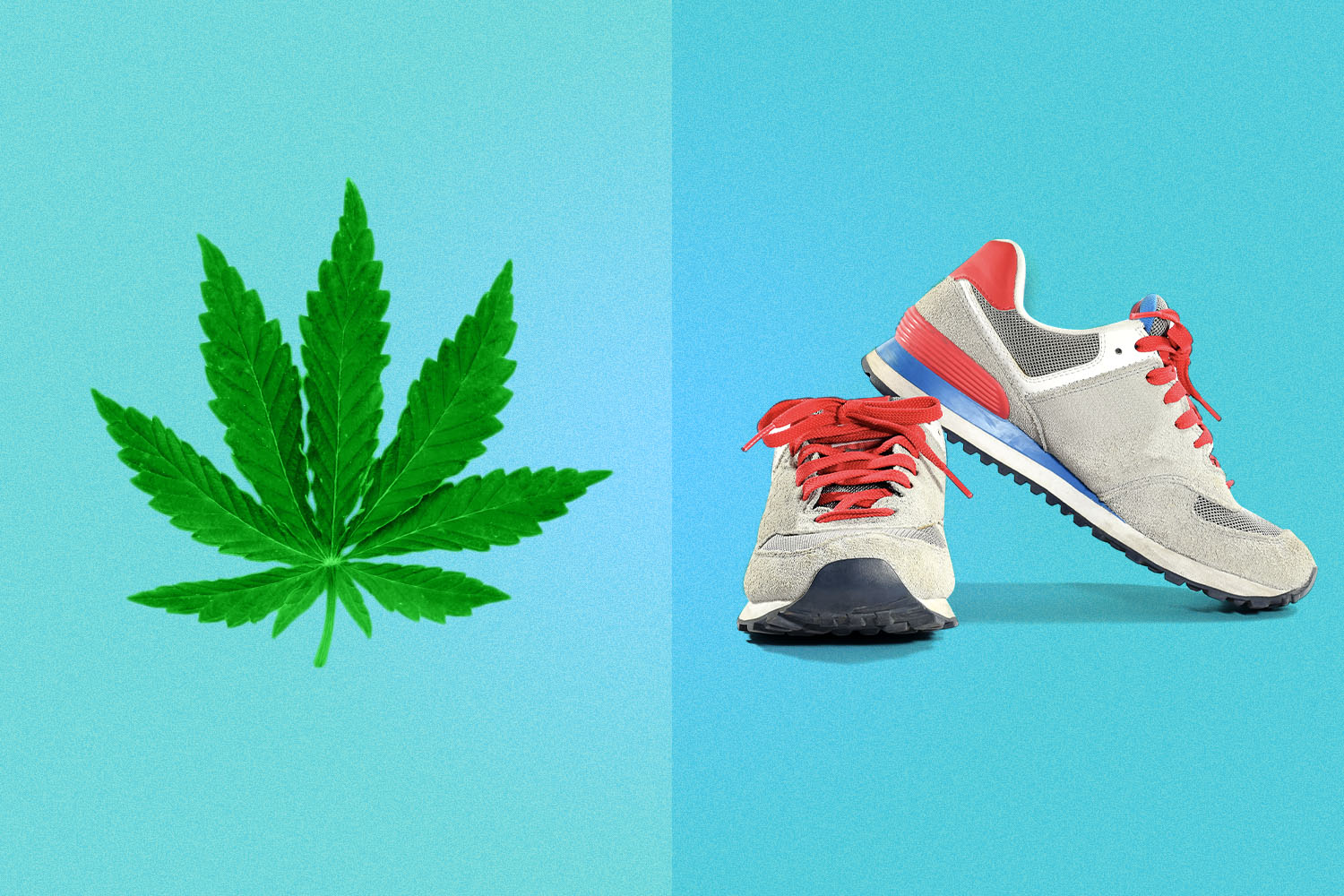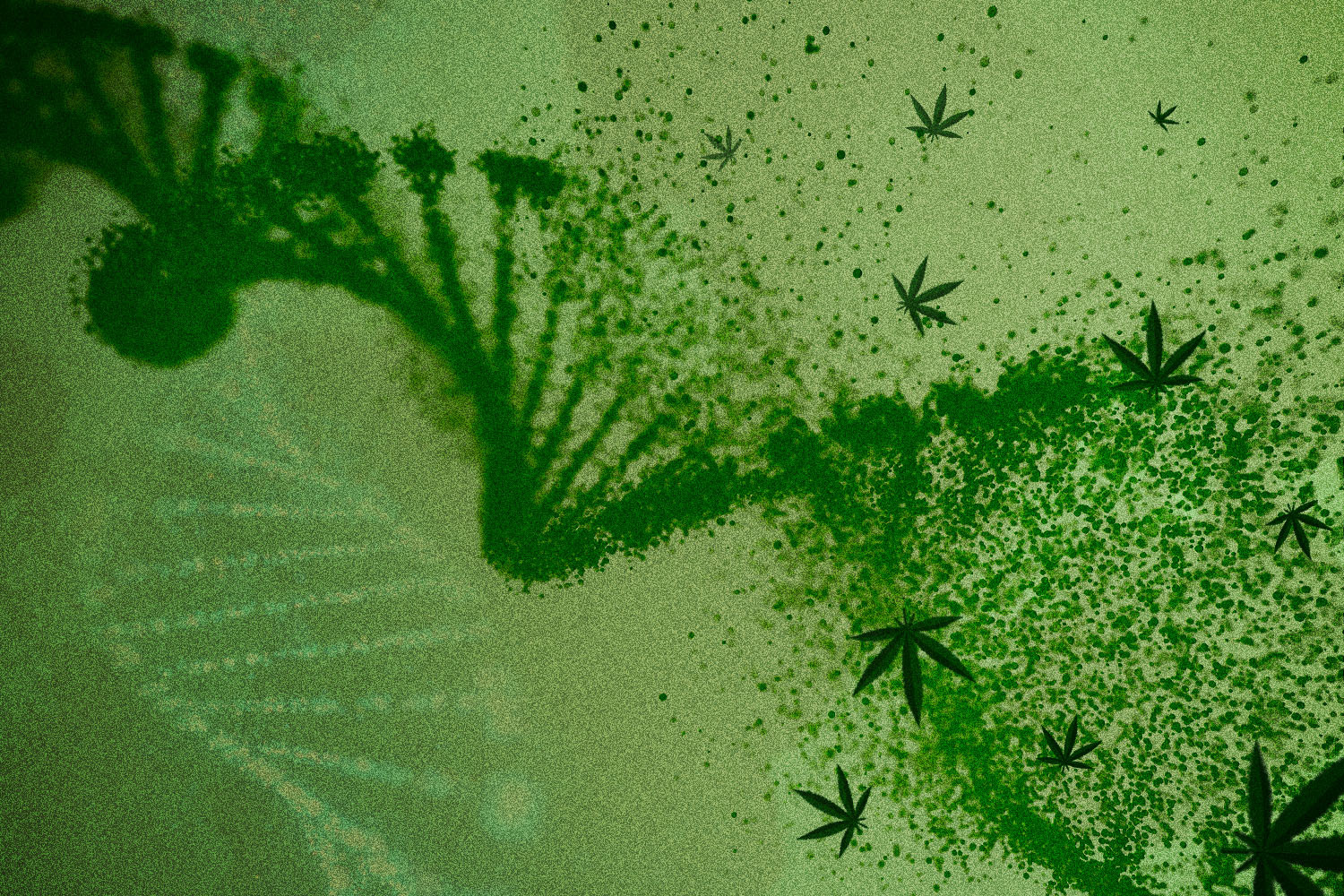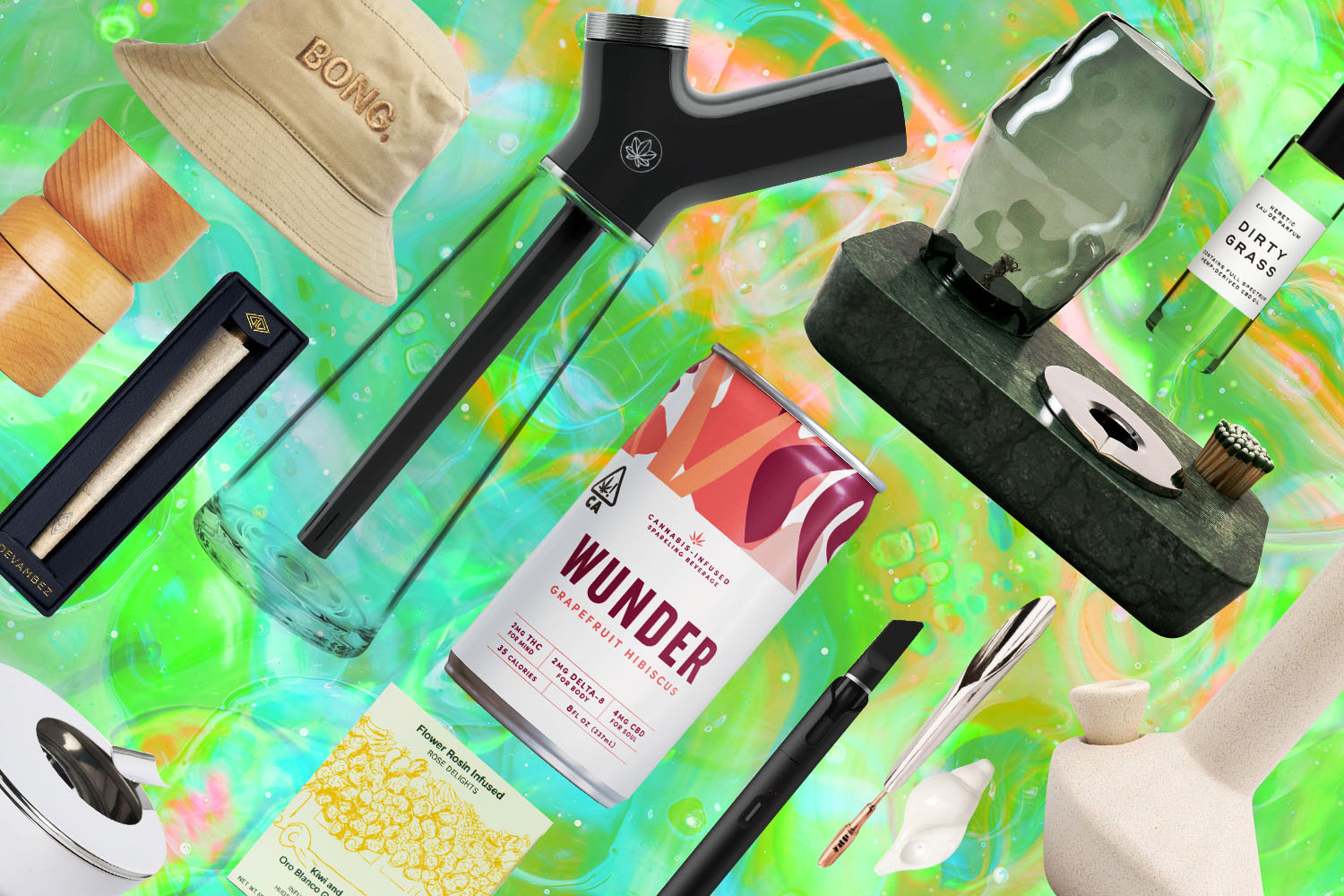There’s a new cannabinoid on the block. The chemical compound known as Delta-8 THC has taken over the cannabis market, and for months now the demand for the hemp derivative has been booming. The skinny? It’s basically a legal THC product that’ll give you a high and is thus a highly coveted product at the moment.
Online and in-person CBD and CBN shops like 3Chi, Hometown Hero and Greenbelt Botanicals, among others, are selling edibles, tinctures, vapes, smokeables and gummies with Delta-8, offering a milder, chiller experience than Delta-9 THC — the main psychoactive ingredient in marijuana — in places where Delta-9 is illegal.
And while the chemical compound is derived from hemp, it’s slightly different than Delta-9. Basically, there’s a double bond on the 8th carbon for Delta-8 whereas the double bond is on the 9th carbon for Delta-9, Mindy Moffe, the general manager of Greenbelt Botanicals, a CBD boutique located in Austin, Texas explains to me. “[Delta-8] is a minor cannabinoid, so it’s not as concentrated as CBD or Delta-9 would be,” she tells InsideHook. “I’ve recently heard Delta-8 THC being described as ‘Cannabis-Light’ or ‘Diet-Cannabis’.”
Delta-8 is often marketed as exactly that — a “lighter” form of marijuana, or as a pain reliever “with less psychoactivity” as David Downs, senior content editor for cannabis news website explained it to The New York Times in February.
As someone who once had a traumatic experience with an edible in college that left her high for two days, I was a little hesitant to try Greenbelt Botanical’s Delta-8 gummies they so kindly sent me. But I took one 25 mg Delta-8 blue raspberry gummy before bed and it was a chill, extremely light high that even helped me sleep soundly through the night, something I hadn’t done in a month.
But as with all psychoactive drugs, Delta-8 affects each person differently. For Moffe, it was a total upper that helped her stay focused throughout the day, but in talking with customers and friends, others found it to be an effective sleep aid. “It just seems to be the ultimate hybrid. It just kind of depends where your mind wants to go. If you want to take it and go out for the night and have a good time, you can do that. Or you can take it at night and pass out and have a full night’s sleep,” Moffe says, adding older customers also use the cannabinoid for arthritis and an alternative to pain medication.
For Moffe, the rise of Delta-8, and its subsequent roaring demand, has helped her company flourish during the COVID-19 pandemic. “Luckily we were able to get out of the COVID hole with normal CBD and other cannabinoids like CBN and CBG that people are just becoming aware of. But without Delta-8, we wouldn’t be able to thrive like we are,” says Moffe, noting customers often come in intrigued by Delta-8, but end up shopping around.
“I completely thank Delta-8 for bringing people through our doors, but it’s not necessarily what someone’s going to walk out with.”
Now naturally, you might be thinking how is something that’s gonna get me semi-zonked legal in the U-S-of-A, a country a bit slow to fully embrace our good friend Mary Jane.
The legality of Delta-8 exists in a hazy grey area, and some states have already begun to crack down on the loophole that makes buying and selling Delta-8 legal in states where cannabis is not.
That loophole exists in the 2018 farm bill, which, among many things, legalized the farming and distribution of hemp, and removed it from the federal Controlled Substances Act’s definition of marijuana. The bill also legalized the THC found in hemp — except for Delta-9, which has a high enough level (over 0.3%) to be classified as marijuana. What it doesn’t explicitly outlaw? Delta-8 and other cannabinoids.
“As of right now, the farm bill only addresses Delta-9, specifically, and not the other cannabinoids. So we are able to sell Delta-8 under that pretense,” explains Moffe.
“With that being said, there’s literally hearings going on now that are probably going to make distributing Delta-8 a lot more strict with more restrictions and regulations. But honestly, our attitude about it is: bring it on. Because, what it seems like, the restrictions and regulations that we’re hearing are going to be put into place, we’re already doing. So it’s no big deal to us. We just hope that they don’t just strip it from everyone because that would just be unfortunate, especially for CBD companies that relied on this.”
As noted above, six states so far have already begun to close legal loopholes in their drug laws that would regulate Delta-8 and other “artificially derived” cannabinoids, with Oklahoma and Alabama even working to include Delta-8 in the legal definition of marijuana. Of course, we know that outlawing a substance doesn’t stop people from acquiring it. Moffe mentioned to me she already knows Delta-8 is on the streets. Plus, as the Times pointed out, Delta-8 really is a case study in how cannabis entrepreneurs are creating myriad new product lines by pulling apart hemp and marijuana. Delta-10, for example, is already in the works.
“They’re already finding out more things,” says Moffe. “There’s only going to be more and more coming out because we’re actually getting more range of ability to do more studies and things like that. So I don’t think there are any signs of it stopping anytime soon.”
Whether you’re looking to get into shape, or just get out of a funk, The Charge has got you covered. Sign up for our new wellness newsletter today.























